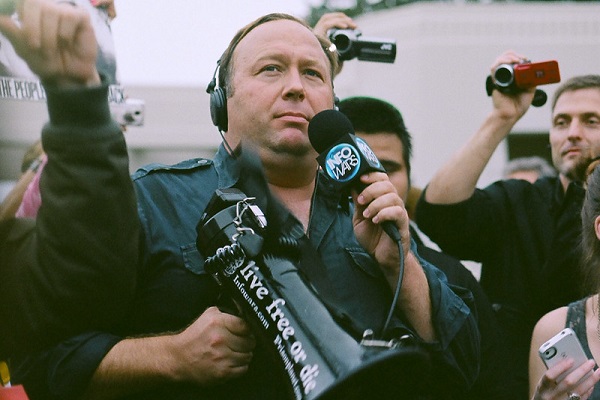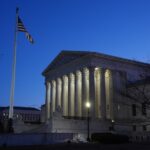
August 7, 2022
On Dec. 14, 2012, a mass shooting at Sandy Hook Elementary School in Newtown, Connecticut resulted in the deaths of 20 children and six staffers. Alex Jones, a controversial far-right talk show host, called the Sandy Hook massacre a U.S. government hoax, staged using crisis actors, to serve as a pretext for gun control. Parents of one of the slain children filed a defamation suit against Jones, claiming that followers of Jones had harassed them and sent them death threats for years in the false belief that they were lying about their son’s death.
‘); googletag.cmd.push(function () { googletag.display(‘div-gpt-ad-1609268089992-0’); }); }
Jones’s defense was his right to free speech and that he was not responsible for the harassment. He lost. The jury awarded the parents $45.2 million in punitive damages on top of $4.1 million in compensatory damages — another example of outrageous damage verdicts that plague the legal system.
Freedom of speech is coming under attack from all directions. The primary assault is based on the existence of a new “right”: the right not to be offended. It is claimed by many on the left that the right not to be offended is more important than the right to free expression.
Our colleges and universities have fallen victim to this new “right.” The feelings of students often constitute sufficient justification for campus censorship. If a conservative speaker offends some of the students, that speaker can be denied a platform. “The belief that free speech rights don’t include the right to speak offensively is now firmly entrenched on campuses and enforced by repressive speech or harassment codes,” wrote attorney Wendy Kaminer in The Atlantic.
‘); googletag.cmd.push(function () { googletag.display(‘div-gpt-ad-1609270365559-0’); }); }
The problem is spreading to the mainstream. In the 2010 case of Nurre v. Whitehead, the U.S. Supreme Court upheld lower court rulings that school authorities can deny students’ rights to free speech just to keep other students from being offended. The courts are “allowing schools the discretion to let an offended minority control a cowed majority,” constitutional attorney John W. Whitehead wrote in the Huffington Post. “There is no way to completely avoid giving offense,” he said. “At some time or other, someone is going to take offense at something someone else says or does. It’s inevitable. Such politically correct thinking has resulted in a host of inane actions, from the Easter Bunny being renamed ‘Peter Rabbit’ to Christmas Concerts being dubbed ‘Winter’ Concerts.”
In a democratic republic, there can be no right not to be offended. If anyone can prohibit another person’s speech because it’s offensive, there is no limit to the restrictions that can be placed on free expression. As the late author Christopher Hitchens said, “[f]reedom of speech must include the license to offend.”
Wherever it is sanctioned, the “right” not to be offended invalidates the Bill of Rights and the Constitution. The difference between the U.S. and Cuba has to do with the right to say and think whatever you like even if someone is offended by it. “What protects people’s rights to say things I find objectionable,” Jodie Ginsburg wrote in The Guardian, “is precisely what protects my right to object.”
“Nobody has the right to not be offended,” said Salman Rushdie, the author targeted for murder by Islamic authorities who were offended by his novels. “That right doesn’t exist in any declaration I have ever read. If you are offended it is your problem, and frankly lots of things offend lots of people.”
In a well publicized media interview, Canadian psychology professor Jordan B. Peterson was asked why his right to freedom of speech should take priority over a person’s right not to be offended. “Because,” he answered, “in order to be able to think, you have to risk being offensive.” Then he added, “You’re certainly willing to risk offending me in the pursuit of truth.” The interviewer was stopped dead in her tracks by Peterson’s astute reply.
The basis for the “I’m offended” movement lies in two flawed concepts: political correctness and “emotional reasoning.” Political correctness is a way of stifling free expression in favor of socially controlled thought. Emotional reasoning is where feelings determine the interpretation of reality. If someone is upset, that proves that something is wrong. It doesn’t matter that you intended no disrespect. The subjective reaction of the other person determines the outcome. Under this doctrine, supported by the left, free speech is an outdated concept.
‘); googletag.cmd.push(function () { googletag.display(‘div-gpt-ad-1609268078422-0’); }); } if (publir_show_ads) { document.write(“
An attempt to silence dissent has been leveled by the transgender community. In a recent Senate hearing, Sen. Josh Hawley was accused by a Berkeley law professor of doing violence to members of the trans community when he refused to agree that men can bear children. The message was that the right of transgender people not to be offended supersedes Hawley’s right to free speech.
The good news is that in the 2017 case of Matal v. Tam, the Supreme Court defended free speech. The unanimous decision was written by Justice Samuel Alito, who wrote the dissent in the Nurre case. “Speech may not be banned on the ground that it expresses ideas that offend,” Alito wrote. “Speech that demeans on the basis of race, ethnicity, gender, religion, age, disability, or any other similar ground is hateful; but the proudest boast of our free speech jurisprudence is that we protect the freedom to express ‘the thought that we hate.'”
There may be hope for the First Amendment after all, but not for Alex Jones.
Ed Brodow is a conservative political commentator and author of nine books, including his new Amazon #1 bestseller, AMERICA ON ITS KNEES: The Cost of Replacing Trump with Biden. His website is www.edbrodowpolitics.com.

Image: Sean P. Anderson via Flickr, CC BY 2.0 (cropped).
If you experience technical problems, please write to [email protected]
FOLLOW US ON






